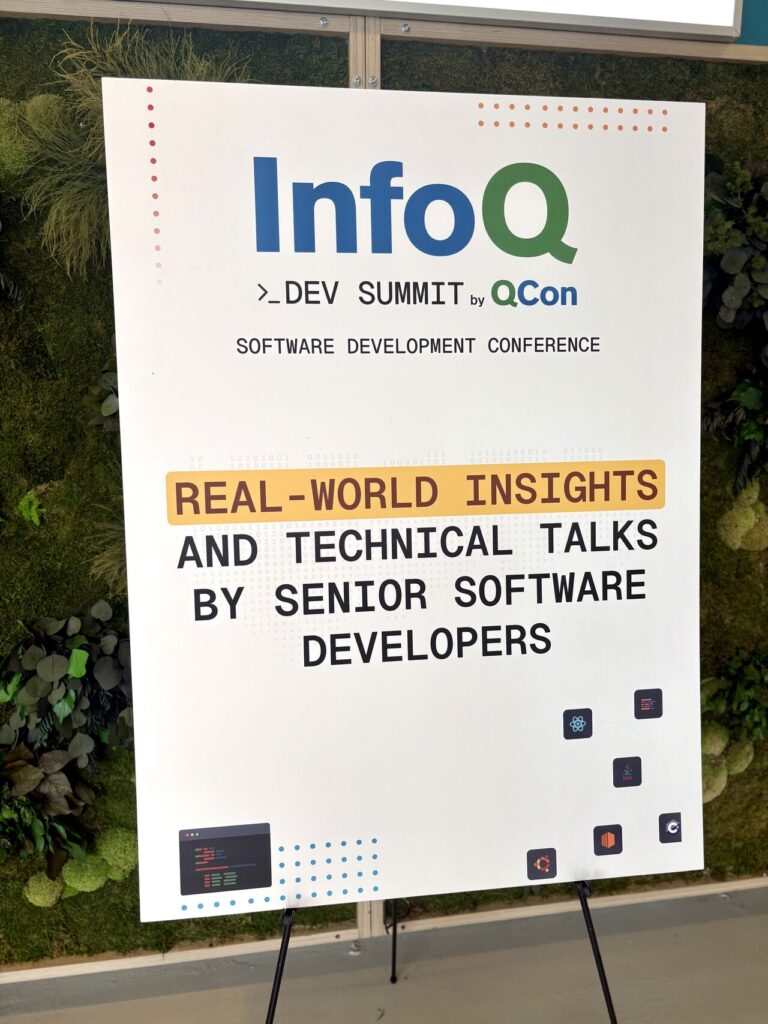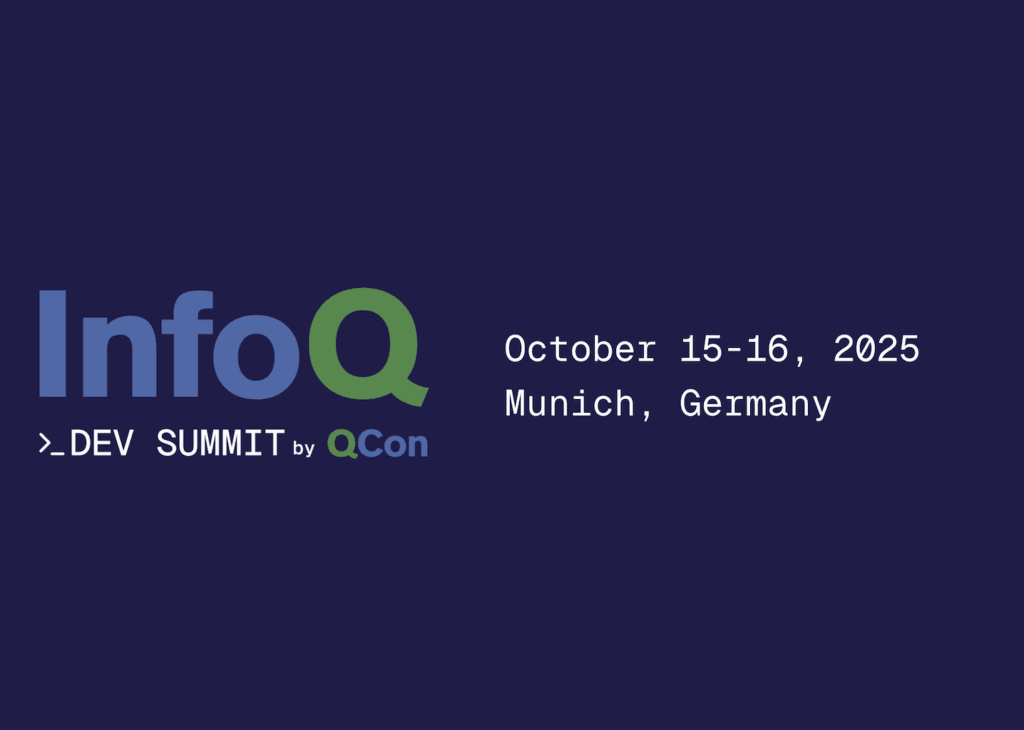Earlier this month, I attended InfoQ Dev Summit Munich 2025, a two-day event focused on modern software architecture, AI, and the human side of engineering.
As a small, cross-functional engineering team, we each wear many hats. Conferences like this give us space to step back, learn from others, and make sure we’re focusing our energy in the right places.
(Also, for the record: both lunches were excellent. Veal goulash on day one, Thai curry on day two — I may have learned as much about lunch as I did about large language models.)

The Reality of AI in Practice
The opening keynote by Katharine Jarmul reminded everyone that successful AI isn’t just about clever models — it’s about everything around them: preparation, quality control, and responsible use. That message resonated with how we already build our Last Mile product, where every stage of the pipeline matters.
Later, Tejas Kumar’s talk on AI Innovation in 2025 and Beyond showed how tools like Langflow can help AI systems stay up to date by retrieving new information when needed. It was a simple demo with big implications — sparking ideas for how we could improve our own data workflows.
Seeing the Bigger Picture
A talk from the Skyscanner engineering team reinforced the value of observability — understanding what’s really happening inside complex systems. It inspired us to explore new ways of connecting our logs and metrics so we can spot potential issues before they impact users.
Another standout session by Charlotte de Jong Schouwenburg focused on how teams grow and stay connected. She spoke about communication, trust, and psychological safety — reminders that strong collaboration and culture are just as important as great code.
Practical Ideas to Bring Home
- Use serverless tools for small background jobs – simpler, cleaner, and more reliable.
- Improve visual testing – explore better ways to compare application screens intelligently.
- Rethink document generation – a fascinating session on producing a million PDFs an hour with new tools like Rust and Typst (see Erik Steiger’s blog) showed what’s possible with modern approaches.
- Stay consistent – whether in architecture or decision-making, consistency beats complexity.
Wrapping Up
InfoQ Dev Summit Munich 2025 offered plenty of ideas — some we can apply immediately, others that simply reminded us we’re on the right track.
For a small, adaptable team like ours, the key takeaway was clear: keep learning, keep improving, and keep building technology that’s reliable, responsible, and ready for what’s next.
Links:
- Katharine Jarmul — LinkedIn profile
- Tejas Kumar — InfoQ speaker bio, LinkedIn Profile
- Charlotte de Jong Schouwenburg — LinkedIn profile
- Erik Steiger — Blog post: “Generating 1 Million PDFs in 10 Minutes”, LinkedIn Profile

